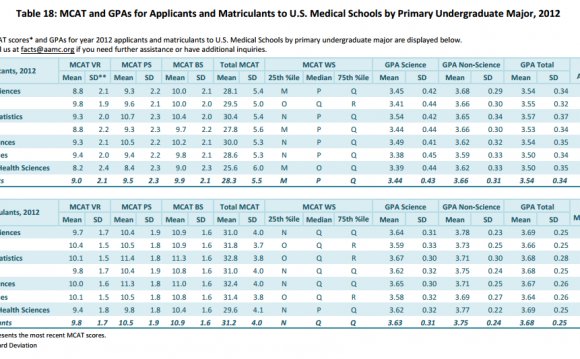
 I was surprised when most of the schools I planned to apply to did not offer premed as a major. It was at that point I realized one of the essential rules of being premed: You do not need to be any particular major in order to go to medical school.
I was surprised when most of the schools I planned to apply to did not offer premed as a major. It was at that point I realized one of the essential rules of being premed: You do not need to be any particular major in order to go to medical school.
So if there is no premed major at your school, is there a best major for premeds? Are there any majors that will give you an advantage in the admissions process? Unfortunately, the answer is much more complicated than a simple yes or no.
Why Don't Majors Matter?
The Association of American Medical Colleges has data to suggest that your major simply does not matter when it comes to getting accepted to medical school. According to their data, only 51 percent of students who enrolled in medical school in 2012 majored in biological sciences. That means the remaining medical school matriculants majored in humanities, math or statistics, physical sciences, social sciences or specialized health sciences.
When they broke down the MCAT and GPAs of these matriculants by major, all the categories have essentially the same GPA, science GPA and MCAT score. Matriculants who majored in biological sciences had a mean MCAT of 31 and GPA of 3.69. Humanities majors had a mean MCAT of 31.8 and GPA of 3.66. The numbers for math and statistics, physical sciences, social sciences and specialized health sciences majors were similar.
No matter what major you studied in college, everyone will learn the same material in medical school, and the majority of the material will be new for everyone. In looking at your GPA and MCAT, admissions committees simply want to know that you can handle the intellectual rigors of medical school.
Why Do Majors Matter?
Although majors do not matter on the macroscopic admissions level, your major does matter on a personal level. As a premed, you need to balance three main factors when choosing a major: difficulty of classes, level of interest and convenience.
Majoring in the biological sciences is desirable because not only is it interesting, it is also very convenient since most biological science majors have already incorporated all the medical school prerequisites. Unfortunately, one downside for some people could be finding biology classes difficult.
But even that is all relative. Students have different strengths and the difficulty of a major depends on what your strengths are.
There are two common mistakes that you should avoid when choosing a major. First, no matter how interesting or convenient a major is, do not choose it if it is too difficult for you. You may be fascinated with bioengineering, but if you are getting B's in all your classes, it may not be the best choice for you.
RELATED VIDEO












